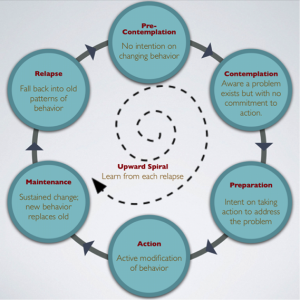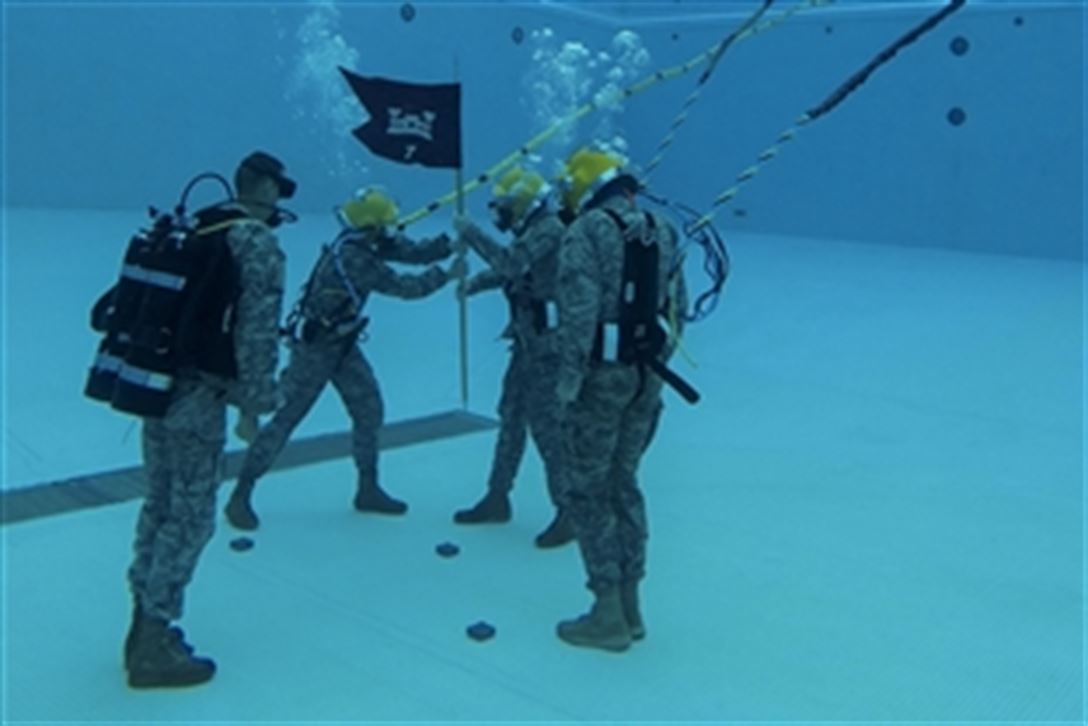
Department of Defense Transition Assistance Program Website
At some point in a service member’s military career, they become aware of the fact that they will no longer be in the military. This may happen when they decide not to reenlist, or when they’re told they can’t reenlist, or some other service-ending situation. Until that point, the service member is not thinking about transition, what is needed to prepare, or even that preparing is something they need to start thinking about.
The problem is, when someone is in the military, they might not be able to contemplate life out of the military, and when you’re out of the military, your level of influence over those still in the military is diminished.
I’ve been having some interesting discussions recently about how to bring the message of effective transition, to include the need to focus on the proper mindset and mental health and wellness, to those still in the service, and here are some of my thoughts on why this is a challenge.
I’m not sure it’s possible.
I think back to where I was even three or four years before leaving the military, and my mindset wasn’t in it. I had so much focus on the immediate mission that I didn’t have time to think about what comes next, even though I “should” have. Even now, we are overcome by events that keep us from thinking too far ahead. When we were in the military, those events were so frequent, and so critical, that they took up much of our consideration. There is only so much bandwidth that we have, and we have to prioritize what we pay attention to. This may be some of the reasons that relationships suffer, or career suffers. If service members are focused on the immediate, considering what life after the military is like is challenging.
I’m not sure those who are in the service, and not considering separation, are willing to consider it.
I’ve heard Soldiers who were considering getting out being told by their leadership, “you might as well stay in, because no one is going to hire you when you get out.” How do they know, when they’ve not transitioned themselves? If everyone around you is in the military, you don’t have the frame of reference needed to make an informed decision. Considering what life will be like after the military doesn’t become important until it is important, and that may happen later in the transition process than is good for the service member.
I don’t know if we would be allowed to.
There is some legitimacy involved in talking to active duty service members. You’re either in or you’re out. The fact that “some civilian,” or “some old veteran” is going to come in and “tell me how to do my business” is probably not going to happen. I have heard from many veterans who have experienced all of the good and bad aspects of transition attempt to return to the service and provide support, only to be told, “That’s okay, we got this.”
Reflecting back on it, my mindset for most of my military career was focused inward, toward the mission and whatever Soldiers I had to accomplish that mission. The military is a series of nesting dolls, with small elements making up larger elements all the way up to entire Brigades, Divisions, and Corps. In the 82nd Airborne Division, not only did we not concern ourselves with what was happening in the 101st Airborne Division, we were not very concerned with what was happening with non-divisional units on Fort Bragg. We had a job to do, and we did it. Those who we could count on to help us do that job, we counted as assets; those who we could not count on, became liabilities.
My idea of why there is a struggle with transition out of the military has to do with something that’s called Prochaska and Diclamente’s Stages of Change model. A basic copy of the model can be seen here:

This model describes how an individual may change their behavior. They go through several stages, from not realizing there is a problem to making successful change. This model can be viewed from a substance abuse lens, in which the addict does not realize that they have a problem, to a point of awareness that they may have a problem but don’t want to change, etc. Or someone who engages in reckless and self-harming behavior, but is not aware that it’s a problem.
Consider this model from the perspective of the intent to transition: are individual service members, and the military as a whole, in the pre-contemplation stage for the majority of the time that they’re in the service?
Five years before retirement, I was in the pre-contemplation stage. I had no consideration of what was necessary for me to transition out of the military, and had no intention of finding out. Two years before retirement, I moved into the contemplation stage, in which I knew I needed to start to get ready but had not really started to do so. Fifteen months before retirement, I moved from preparation and into direct action, and so felt as though I had a fairly successful transition.
What would have happened if I would not have had that much time, or spent the effort to take that much time? What would have happened if instead of being in the pre-contemplation stage five years before retirement, it would have been five months? Or five weeks? Regardless of how quickly I would have moved through this model, I still had a termination date for my service, and it would come whether I would be ready or not.
In the mental health profession, we understand that individuals will not change until they are ready to change. No amount of external influence can truly make someone change until they are prepared. The best that we can do, that anyone can do, is to help the individual gradually gain awareness until they decide to make the move from pre-contemplation, to contemplation, to preparation, to action. Unfortunately, with military transition, the service member is forced to change regardless of where they are in the cycle. Still not acknowledging that you need to make the shift to a transition focus? Too bad, your termination date still happens.
There have been some intriguing ideas put out there to assist service members in making this transition. Reverse Boot Camps. Transition Units. Longer lead times. The fact is, these ideas are unlikely to be adopted by the military, regardless of how effective they may be both in theory and in fact. The challenge is, when the most support is needed, the least amount of support is available, which is after the service member leaves the military. This is why it is up to other veterans who have made the transition to support those coming behind us.
Did you enjoy this post? Please comment below and share with your network in order to join the conversation regarding veteran mental health. You can sign up for updates from Head Space and Timing and follow Duane, a combat veteran and mental health counselor, on Facebook, Twitter and LinkedIn.



2 Comments
Chad Conger · December 21, 2016 at 5:45 am
To play the devil’s advocate – I wonder if it’s too much. Separating service members are afforded many advantages: an almost unlimited amount of paid time to attend workshops on job hunting, resume writing, etc; up to 10 days free leave to job-hunt and interview; job fairs are hosted at installations; programs such as the Partnership for Youth Success (PaYS) offer interviews to veterans with participating employers, etc. These are all opportunities that are not afforded in the corporate world – your last day is the last day your former employer does anything for you (usually). At what point should the services require the separating service members to take ownership of the fact that their service is coming to an end (or is already over) but their life is continuing and they must be individually responsible for what is next for them? Keeping in mind that there are millions of veterans – far too many for the services to effectively manage – at some point the cord has to be cut and veterans have to be forced to be just that – former service members.
Duane France · December 21, 2016 at 6:07 am
Excellent point, Chad. There are many resources available to transitioning service members, almost too many choices. It’s like the old joke about the guy stranded on the rooftop in the flood, who says, “God will save me” to the policeman, the rowboat, and the helicopter. Getting to heaven, he says to Saint Peter, “Where were you?” St. Pete says, “we sent you a policeman, a rowboat, and a helicopter, what more did you want?”
The challenge, I believe, and what you point out, is that there is a personal ownership that a veteran must take, and that doesn’t always happen. Why? Their heart isn’t in it, their mind isn’t in it, they don’t have realistic expectations. It may also be that a focused transition mindset is not modeled by their mentors, their role models, either junior or senior.
Thanks for the thoughts. Great points.
Comments are closed.